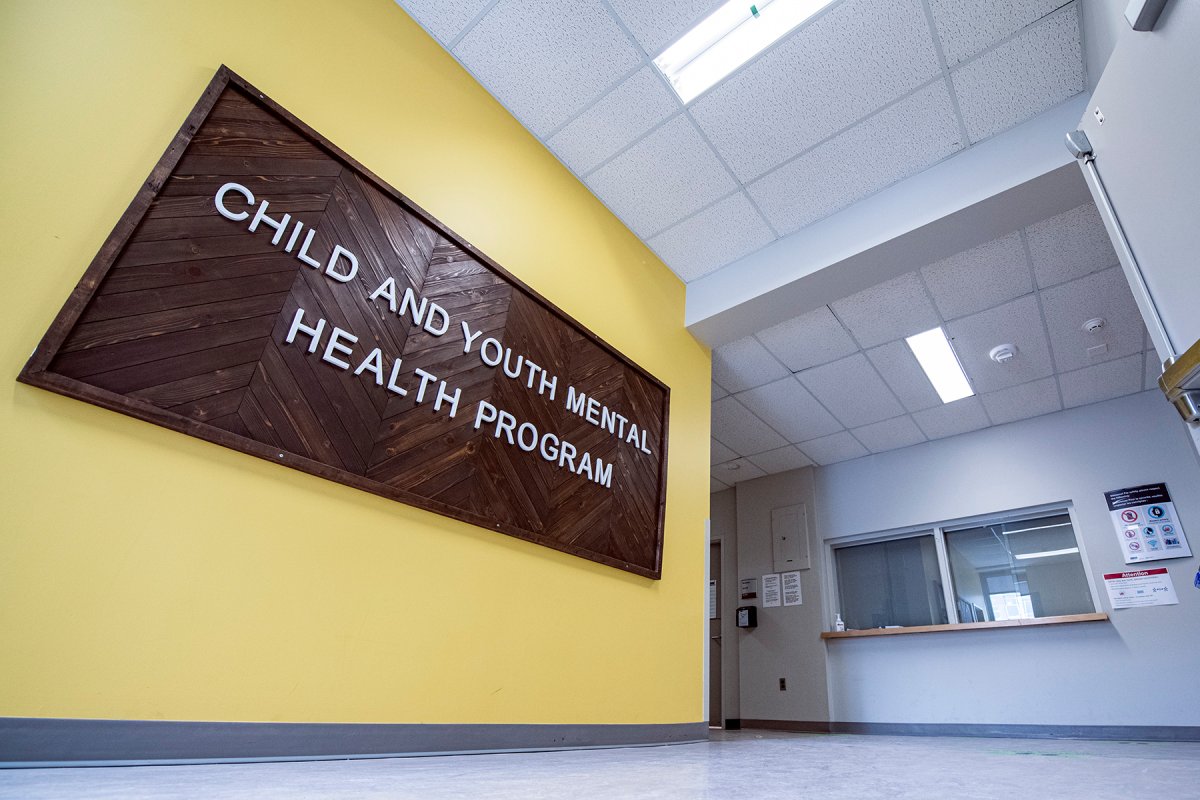On Tuesday, the second day of Eating Disorder Awareness Week, a Kingston psychotherapist told Global News the coronavirus pandemic is prompting more young patients to be referred to the local eating disorder clinic.

“I think in our adolescent population, we’re noticing that we definitely have an increase in referrals since the onset of COVID, and worsening presentation as well,” says Brittany Marshall, registered psychotherapist, who is waiting to write her entry to independent practice exam before she can go from qualifying to qualified.
Marshall works with youth in Kingston ranging in age from 14-18 at the Child and Youth Eating Disorder Clinic with Kingston Health Sciences Centre (KHSC). She says the pandemic is making navigating anorexia, bulimia and other eating disorders even harder for young people in Kingston.
The pandemic is throwing off routines, outside time and limiting contact with others, which is causing Canadians’ mental health to decline, Marshall says.
“There’s a lack of connectedness. Usual support that people had access to is just not available right now. There’s a huge loss of outlets,” Marshall says.
She says that eating disorders are the most fatal mental health illnesses and are misunderstood, and that isolation during the pandemic can make it more dangerous.
SickKids, which spoke to Global News two weeks ago on the subject, echoed these points, saying that social isolation and limits on extra-curricular activities caused by the pandemic are taking a toll on young people, with the hospital seeing children as young as nine and 10 being diagnosed with an eating disorder.

The hospital said not only are younger patients suffering from eating disorders but they’re also presenting “sicker and more underweight” than before the pandemic began. SickKids says the wait time for referrals has also almost doubled during the pandemic to upwards of six months.
“Increased social media and exposure to all kinds of messages like fat-phobic messages … all of these things are contributing to the surge,” says Dr. Debra Katzman, professor of pediatrics at the University of Toronto and SickKids Hospital. Katzman, notes it’s not only an issue being seen in Toronto but across Ontario and Canada. Children are referred to SickKids severely underweight and with heart issues such as a low heart rate and problems with salt in their bodies, Katzman says.

Get weekly health news
Specifically in Kingston, Marshall says the Child and Youth Eating Disorder Clinic sees more patients between the ages of 14-16 than any other age.
Even during the pandemic, Marshall says the clinic offers in-person services with dieticians and pediatricians because a hands-on approach with eating disorders is essential.

The team at the clinic works with young people and their families to create specific treatment goals to restore body weight, promote healthy development, and treat underlying mental health issues.
“Since the onset of the pandemic, the (Adult Eating Disorders) Program has continued to offer both in-person and virtual (video and phone) appointments, continuing to provide all components of care. Though early on in the pandemic referrals dipped temporarily, they have increased significantly over the past many months, sometimes doubling what we received pre-pandemic. The program has also noted an increase in complexity of presentation, both in eating disorder symptoms and severity, as well as comorbid medical and psychiatric conditions such as depression and anxiety,” says Nicholas Axas, Program Manager for Mental Health & Addiction Services, Social Work & Virtual Care at KHSC-HDH.
The Adult Eating Disorders Program provides comprehensive ongoing team-based care for adult patients with eating disorders. Services include psychiatric assessment and follow-up, medical monitoring with a nurse practitioner, nutritional interventions with a registered dietician similar to the youth clinic.
–With files from Global News’ Jessica Patton









Comments